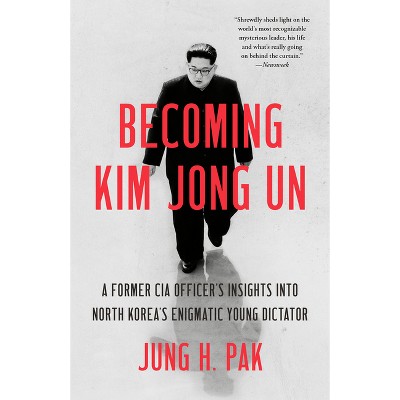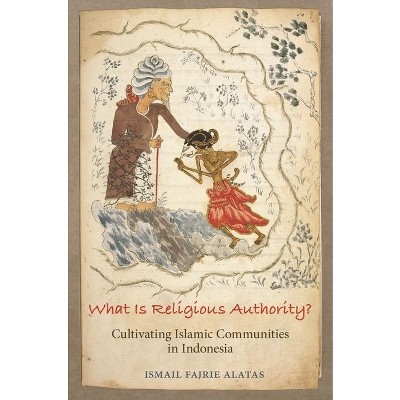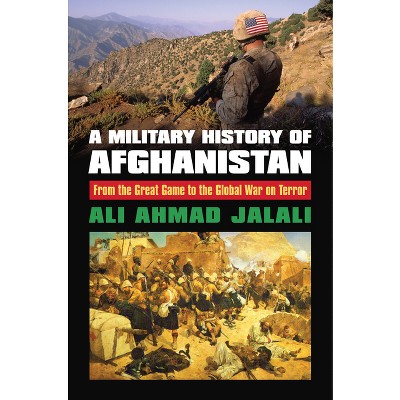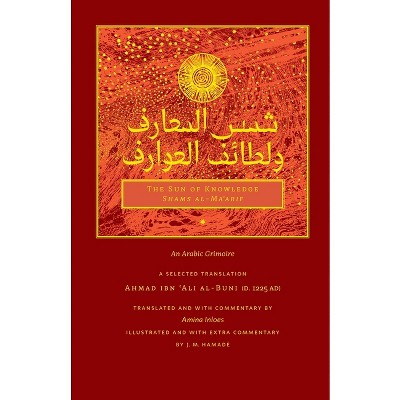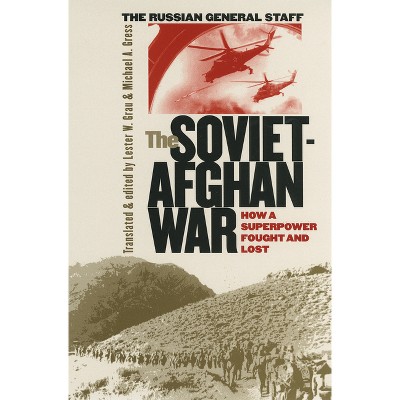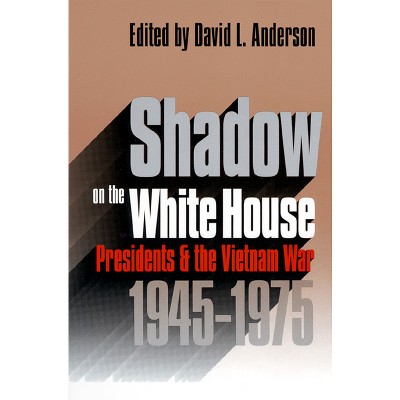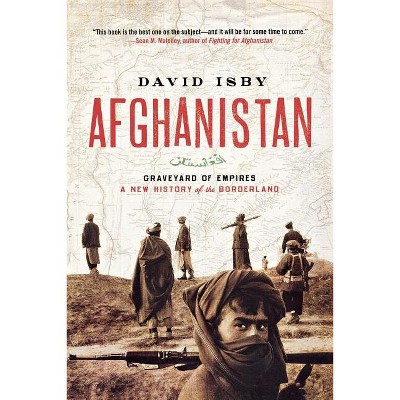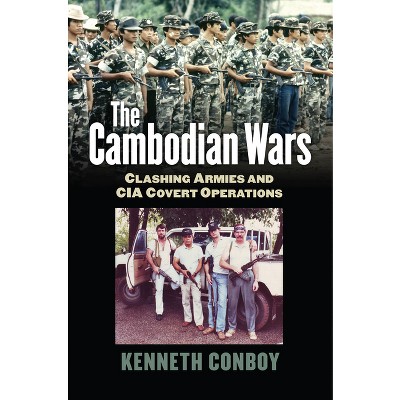Sponsored

Afghanistan - by Ali Ahmad Jalali (Hardcover)
In Stock
Sponsored
About this item
Highlights
- Afghanistan: A Military History from the Ancient Empires to the Great Game covers the military history of a region encompassing Afghanistan, Central and South Asia, and West Asia, over some 2,500 years.
- Author(s): Ali Ahmad Jalali
- 392 Pages
- History, Asia
Description
About the Book
This is the first comprehensive study in any language published on the millennia-long competition for domination and influence in one f the key regions of the Eurasian continent.Book Synopsis
Afghanistan: A Military History from the Ancient Empires to the Great Game covers the military history of a region encompassing Afghanistan, Central and South Asia, and West Asia, over some 2,500 years. This is the first comprehensive study in any language published on the millennia-long competition for domination and influence in one of the key regions of the Eurasian continent. Jalali's work covers some of the most important events and figures in world military history, including the armies commanded by Cyrus the Great, Alexander the Great, the Muslim conquerors, Chinggis Khan, Tamerlane, and Babur. Afghanistan was the site of their campaigns and the numerous military conquests that facilitated exchange of military culture and technology that influenced military developments far beyond the region. An enduring theme throughout Afghanistan is the strong influence of the geography and the often extreme nature of the local terrain. Invaders mostly failed because the locals outmaneuvered them in an unforgiving environment. Important segments include Alexander the Great, remembered to this day as a great victor, though not a grand builder; the rise of Islam in the early seventh century in the Arabian Peninsula and the monumental and enduring shift in the social and political map of the world brought by its conquering armies; the medieval Islamic era, when the constant rise and fall of ruling dynasties and the prevalence of an unstable security environment reinforced localism in political, social, and military life; the centuries-long impact of the destruction caused by Chinggis Khan’s thirteenth century; early eighteenth century, when the Afghans achieved a remarkable military victory with extremely limited means leading to the downfall of the Persian Safavid dynasty; and the Battle of Panipat (1761), where Afghan Emperor Ahmad Shah Abdali decisively routed the Hindu confederacy under Maratha leadership, widely considered as one of the decisive battles of the world. It was in this period when the Afghans founded their modern state and a vast empire under Ahmad Shah Durrani, which shaped the environment for the arrival of the European powers and the Great Game.Review Quotes
"This is an expert yet accessible account that has much to tell any students or scholars interested in a more textured, nuanced understanding of Afghanistan extending beyond the last 200 years."--Journal of Military History
"Ali Ahmad Jalali has produced the first military history of ancient, medieval, and early modern Afghanistan on a scale commensurate with the subject. This work will be invaluable to military historians and area specialists; it combines sound scholarship and accurate translations from the full range of sources."--Jeremy Black, author of Military Strategy: A Global History
"Afghan monarchy, Soviet communism, and American democracy have failed in Afghanistan. Before that, Afghanistan was caught between British-controlled India and an expanding Russia. Now Afghanistan must come up with a new model. Must it inevitably be another faltering religious dictatorship, or will it eventually go back into its history to examine how it was an influential regional power? Ali Jalali provides this background as the prehistory to his A Military History of Afghanistan: From the Great Game to the Global War on Terror. This excellent work provides the classical antiquity of Afghanistan to an English-speaking audience and may yet provide some direction to this war-and-dogma-wracked people."--Jacob W. Kipp, Center for Russian, East European, and Eurasian Studies, University of Kansas
"It was Winston Churchill who coined the famous phrase 'a riddle, wrapped in a mystery inside an enigma' when describing the Soviet Union in 1939. But for those many would-be conquerors who have invaded Afghanistan during the past 2,500 years, this phrase is, indeed, uniquely apt. Just how apt it is emerges clearly from Ali Jalali's new book, Afghanistan: A Military History from the Ancient Empires to the Great Game, a prequel to A Military History of Afghanistan: From the Great Game to the Global War on Terror that reveals why country after country have striven to tame Afghans only to fail consistently. In a period when the United States is turning its back on the problem after almost twenty years of active but frustrating involvement in Afghanistan, it would be prudent for the United States and other countries to understand why Churchill's phrase is so apt to Afghanistan yesterday, today, and tomorrow."--David M. Glantz, author of the Stalingrad Trilogy
"What do Cyrus the Great, Alexander the Great, several Muslim conquerors, Chinggis Khan, Tamerlane, and Babur have in common? They all fought in the region that became Afghanistan. Ali Jalali's long-awaited prequel to A Military History of Afghanistan is finally available. Afghanistan: A Military History from the Ancient Empires to the Great Game covers 2,500 years of regional military history up to the period of European colonialism. Superbly crafted, quite readable, and authoritative, Jalali's endurable scholarship illuminates regional and national facets that are still misunderstood despite the most recent decades of struggle. Highly recommended for the specialist and general reader."--Lester W. Grau, senior analyst, Foreign Military Studies Office, US Army Combined and General Staff College at Fort Leavenworth, and author of twelve books on Afghanistan, including Operation Anaconda: America's First Major Battle in Afghanistan
Shipping details
Return details
Trending Non-Fiction







